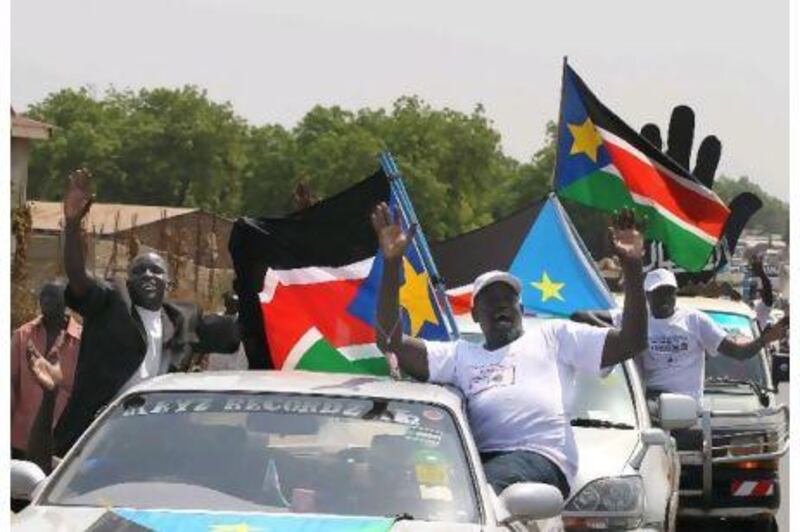WASHINGTON // Years of international efforts to broker and implement a peace deal between northern and southern Sudan will finally see results tomorrow as the south votes to determine whether or not the country is to remain united.
John Kerry, the chairman of the US Senate Foreign Relations Committee, said on Tuesday while visiting Sudan to offer diplomatic support for the referendum: "Sudan is at a pivotal moment. The United States played an important role in ending the civil war in Sudan and making the vote this Sunday possible. Our commitment to the Sudanese people will extend beyond the referendum, whatever its outcome."
Sudan has flickered on and off Washington's radar for decades. US security interests were triggered when al Qa'eda was headquartered in Khartoum during the early and mid-1990s.
Laura Jones, a policy analyst with the Enough Project, a Washington-based humanitarian group that is supported by several high-profile personalities, including such celebrities as George Clooney, said: "[US interests] changed over the years somewhat, because, of course, back 28 years or so we were looking at the fact that Sudan was harbouring terrorists. Osama bin Laden lived in Khartoum for quite a while, and had his outpost there. Since then it would appear that Sudan doesn't pose the same security risks that it once did."
Security concerns may have diminished over time, but the economic costs of conflict in Sudan for the region have not been lost on US policymakers, said Sally Smith, a co-ordinator with Sudan Now, a Washington-based Sudan advocacy group.
"I think people are starting to see the writing on the wall financially: that it is easier to prevent a war than to clean up the situation afterwards."
Sudan gained political attention during the Bush administration, particularly as the Darfur conflict began to gain more awareness with the public. Some observers attributed Mr Bush's interests to Sudan's Muslim-Christian divide, where the north's predominantly Muslim population is in stark contrast to the south's Christian majority.
"The other aspect, of course, is that during the Bush administration President Bush became very interested in the sort of religious and cultural dynamic of the war between the north and south, and that somehow extended into Darfur, though of course the war in Darfur was between Muslims and Muslims, but somehow it took on this religious element, which was unique to that administration," Ms Jones said.
For Sudan, tomorrow's referendum, which will last one week, is only the beginning. The following six months will see some of the most contested issues between the north and south come under negotiation. Marina Ottaway, the director of the Middle East programme at the Carnegie Endowment for International Peace, said those six months will be crucial for stability in Sudan and the broader region.
"It is stability in the sense that Sudan is part of a very unstable area, and greater instability in Sudan is going to complicate the issues in that entire region. Southern Sudan in particular is going to be a landlocked country of no particular strategic significance, so the US does not have any direct security interests in that area, it is more the security of that entire region."
A war between the north and south in the wake of the referendum, if voters choose to separate, seems highly unlikely. But the possibility of violence breaking out in three border regions, Abyei, Blue Nile and South Kordofan, is significant, according to Ms Ottaway. During the civil war these regions were major battlegrounds, and though they remain more or less north of the proposed border they contain populations that are highly sympathetic with the south.
If the south votes for secession, which some see as a foregone conclusion, both the north and south will need to address potentially volatile issues such as revenue-sharing, border demarcation, and citizenship. Each country will have thorny domestic issues to work through as well.
An independent south will have to build its state effectively from scratch. Since it was granted partial autonomy in 2005 as part of the peace agreement, Washington and Juba have worked closely in this endeavour. Still, Juba has much work to do.
"It has hardly any paved roads. It needs to essentially set up all the infrastructure of a state, and I think that means there is going to be a very significant [international] donor presence for years to come", Ms Ottaway said.





